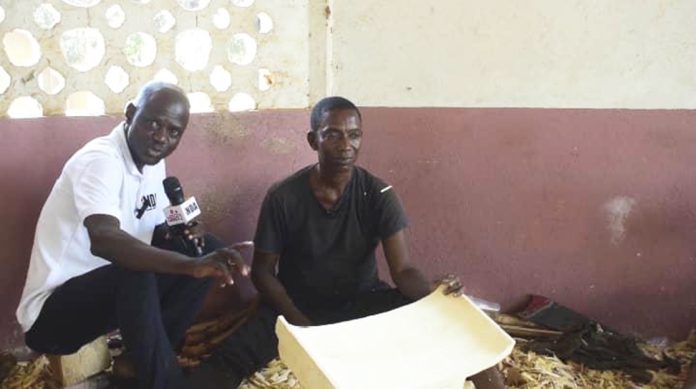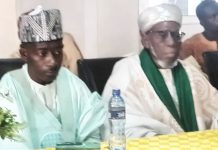Mr. Kwame Adjie, one of the carpenters at Ahwia Pankrono, in the Kwabre East district of the Ashanti region, who designed the presidential chair used for the inauguration ceremony of presidents, has expressed worry over the inability of the state to appreciate their work.
Speaking to the media, Adjie disclosed that he and his elder brother, Kwabena Appiah, designed the magnificent chair sometime in 2000, when former President John Agyekum Kufuor (JAK) was about to be sworn into office as the president of Ghana.
This development, Adjie noted, was as a result of the statement made by the late former president, Jerry John Rawlings, that if Kufuor wanted a furniture to sit on as a president, then he should go to Anloga, Kumasi for one.
According to him, they were approached by the late Akyempimhene, Oheneba Adusei Poku and among other traditional leaders at Ahwia that the inauguration of president JAK was fast approaching, hence the need for them to put their heads together and design the chair for the inaugural ceremony.
Asked about the duration within which they were able to construct the chair for the inauguration ceremony of President Kufour, he responded that owing to the short notice, they used three days to carve the artistic chair.
Responding to the question whether they had ever been appreciated in public since they made the chair for Ghana, Kwame Adjie responded in the negative, adding that they were only given GHC36 (thirty-six Ghana Cedis).
Nevertheless, Adjie feels honoured that he and his brother’s handiwork is what the state uses for such symbolic ceremonies.
“It brings grace to those of us who made the chair because it has taken the name of Ahwia afar, and it has made us popular.”
According to him, the inaugural chair used by Dr. Kwame Nkrumah was made by his late father and uncle.
Asked if Ghana has treated them well as far as their intellectual property (presidential seat) is concerned, Adjie stated that Ghana has not been good to him and his brother at all.
To Adjie, had they accomplished this feat abroad, they and their unborn generation would have benefitted from their intellectual property, but that is not the case in Ghana.









